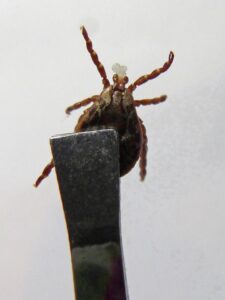It is not always easy to tell if an animal is pregnant, and so we have put together this guide to identifying if your pet is pregnant and the timeline you can expect to work to.
Pregnant Dogs
About the pregnancy: Pregnancies in dogs usually last around 60-65 days. During the first 3 or 4 weeks there may not be any indication of pregnancy at all, but if your dog does display symptoms they may include increased hunger and demanding more attention. Sometimes her nipples may seem enlarged.
Around 5 weeks gestation, your pet will begin to exhibit a clear mucous discharge from her vagina, which will continue through until whelping commences and is a pretty reliable sign of pregnancy.
An ultrasound can pick up the heartbeat of any puppies around 28 days gestation, and if you are very lucky you may even be given an indication of how many pups to expect! Your veterinarian may also be able to palpate your dog’s uterus to feel the fetuses.
It is also possible to do blood tests to confirm the pregnancy. These check for the hormone Relaxin and can be done 28/30 days into the pregnancy, although if there are less than 3 fetuses expected the result may show as a false negative.
If necessary, an x-ray can be performed towards of the end of the pregnancy which will confirm the number of puppies to expect and if they are of a reasonable size to delivery naturally. If they appear too large your dog may require a caesarean delivery.
Pregnancy care information: If you are already feeding your dog a high quality food then no additional supplements will be necessary during the pregnancy. Over-supplementing is just as dangerous as not receive proper nutrition. However, if you are at all concerned about her nutritional content, consult with your veterinarian who will be happy to advise you.
You should continue to provide regular light exercise to keep your dog’s weight stable and maintain good muscle tone.
After the fourth or fifth week of pregnancy begin adding a premium puppy food (not formula!) or a premium performance food to her diet. As the weeks progress you should add a little more each week so that by the end of the pregnancy she is only consuming the puppy/premium variety.
You may also find that as the puppies grow, your dog needs to be fed little and often as opposed to two or three larger meals. During the final week or two of pregnancy, and in the first month of lactating, it is not unusual for your dog to consume up to four times the amount of food she ate before becoming pregnant. Unless she is becoming overweight, then you should make sure you provide the food that she needs.
If you pet has either internal or external parasites then these should be treated prior to giving birth. Almost all medications should be avoided during the pregnancy and nursing period, so if you suspect your pet is in need of treatment always consult your veterinarian.
Pregnant Cats
About the pregnancy: A typical cat pregnancy will last around 62-67 days. During week 2 or 3 of the pregnancy your cats nipples will become enlarged and appear red, a stage of pregnancy known as ‘pinking up’.
Your feline will begin to put on weight, and depending on the number of kittens she is carrying, you can expect her to put on between 1-2kgs. At around 15 days gestation an ultrasound will be able to pick up the fetuses and confirm the pregnancy, and the heartbeat can be detected as early as 17 days.
Although your cats’ abdomen will continue to expand, you should avoid touching it as much as possible to avoid causing her any discomfort and injuring the unborn kittens. After 40 days gestation an ultrasound should be able to confirm the number of kittens that your cat is expecting.
Pregnancy care information: If you are already feeding your cat a high quality food then you can continue on this for the duration of her pregnancy. You will find that her appetite increases significantly and remains so until she is finished nursing. If you are at all concerned about your cats’ diet or nutrition, your veterinarian will be happy to offer you advice or reassurance.
You may also notice a change in the behavior of your feline friend. Pregnant cats often become territorial and appear moody. They also show signs of becoming maternal such as purring and nesting.
Pregnant Rabbits
About the pregnancy: the average pregnancy length for a rabbit is 31 days and a doe can expect to produce one or two rabbits each time. She can also become pregnant again within just a few days of giving birth, hence the catchphrase ‘breeding like rabbits’! However this is not advisable and can be detrimental to the health of your doe and her offspring.
The best way to confirm a pregnancy in a rabbit is to gently palpate her tummy. This can be tricky unless you have done it before, but if you can feel soft grape-sized lumps in a row on either side of her abdomen then chances are your bunny is carrying babies.
Another good indication is a total change in temperament in your rabbit, who may become withdrawn, moody and territorial. She may be seen digging down into the corners of her cage, or building a nest.
If you are still unsure if your rabbit is pregnant, your veterinarian will be able to make a definitive diagnosis for you.
We have to conclude this section with another gentle reminder. There are countless animals in shelters up and down the country that are in desperate need of a good forever home. Please consider adopting an animal before breeding others.



